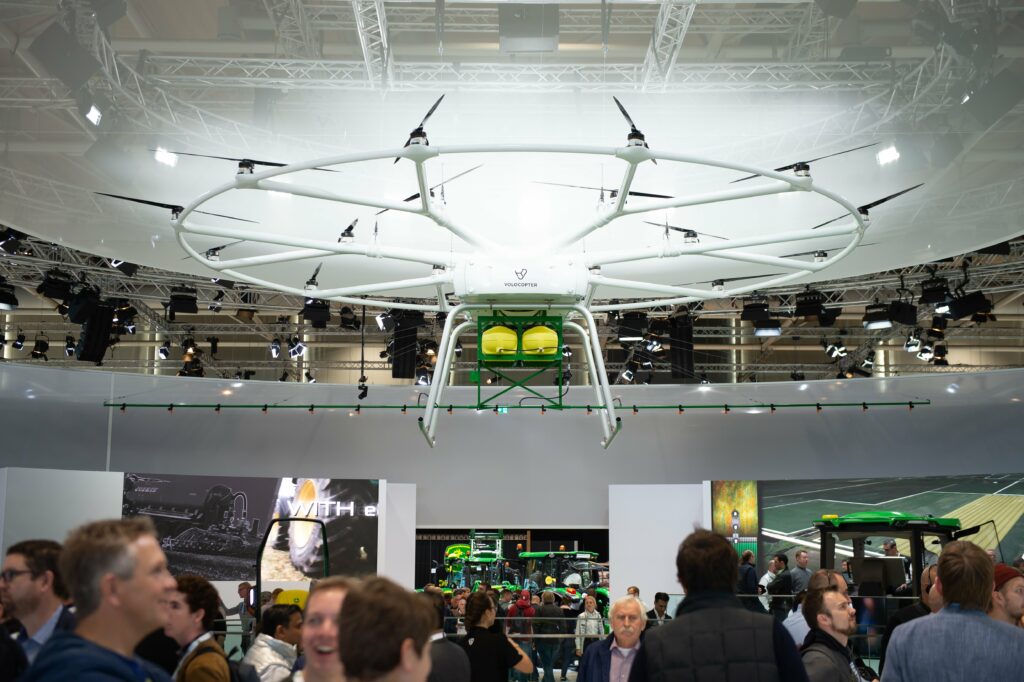Tom Allen-Stevens travels forward to 2030 and imagines what prospects agri-tech pioneers will have.
In just a few days it will be 2030 – for over a decade, this has been seen as something of a milestone year in farming’s journey to Net Zero.
It also seems a good point to look back on the first issue of Tech Farmer, that was launched just before Christmas 2023. What were the key issues we picked out then, and how have they developed since?
2023 was the beginnings of the Fourth Agricultural Revolution – a time at which it was first recognised (at last) that farmers are innovators as well as capable practitioners. The Basic Payment had reduced to half its original offering, and uncertainty surrounded how SFI would replace it.
No one had ever heard of ADOPT, the new Defra-funded scheme that’s now credited for helping pioneering farmers bring new research into practice. Or at least no one had heard of it until Tech Farmer became the first to announce its arrival (right there on p42 of our first issue, if you have any doubts).
Interesting too that this was announced in the same article that explored the merger of the Agri-Tech Centres and the formation of what then became the Agri-Tech Catapult. Who would have thought back then that these centres would subsequently merge with AHDB?
Robotics was the focal point of that inaugural issue, and the cover story profiled for the first time what was then the relatively unknown potential of CLAWS – Concentrated Light Autonomous Weeding and Scouting (p12). Of course, things have now moved on – it’s incredible to think how much we used to rely on glyphosate for weed control.
And do you remember those pre-emergence herbicides we used to apply with gay abandon, until weed resistance rendered them obsolete and regulators decided they’d had enough? Thank goodness for the pioneering solutions that have developed since, some of them shown at FIRA 2024 (p28).
One thing that struck me, looking back at that first issue, was Jonathan Gill’s insight into what the next ten years would bring (p35), given his experience as one of the heralds of the hands-free hectare.
“My future hope is a flock of drones performing tasks across the fields, all self-launched and tasked by an AI field manager who knows the best conditions day or night to plant or protect crops even down to a single plant,” he says. Wow – just remember, he talked of that at a time when UK regulation made such a hope unthinkable. Thank goodness policy makers took note.
To be fair, that’s one aspect that the agri-tech pioneer of 2030 can be grateful for – the foundations for agri-innovation may have been laid down by the last Tory government (remember them?), but it’s the Coalition that needed to step up to the task, and to be fair it did soon after the General Election in 2024. I certainly can’t remember as much being invested in farmer-led R&D. And its ag policy is clearly proving to be a vote winner, if the recent GE2029 landslide victory for the new Labour administration is anything to go by.
The European picture is now a similar scene of good prospects for those farmers who have grasped the technology nettle and worked to shape it to their advantage. The EU New Horizon for Agriculture Agenda, signed after the end of the Ukraine conflict, at last gave the green light across Europe for gene-edited crops, and put the emphasis squarely on productivity, as the previous Farm to Fork Strategy was quietly dropped. Analysts reckon the policy move aligns the EU much closer to the UK’s current agri-tech tract. This explains why some of the businesses we profiled in that first issue of Tech Farmer are expanding rapidly across the EU.
The global picture has been more of a rocky road, however. UK farmers may have benefited from the soya crisis of 2024, but the economic turmoil in South America that ensued has sent shock waves of uncertainty throughout the global ag industry. We’ve yet to see whether the US president can deliver in her second term of office the promises to support US Agriculture she made in her first, but the impact, in terms of agri-tech investment, is already being felt.
Nowhere was this more obvious than in the halls of Agritechnica 2029. Visitors to the show just six years earlier were treated to innovations such as New Holland’s energy-independent farm (p50) and John Deere’s Farm of the Future. The worry then was that the developments into autonomy and tech made by these global giants wouldn’t be available to UK farms, with our small roads and fields. The UK was in danger of being marginalised out of agri-innovation directed purely at the vast fields and wide, open plains of the Americas and Eastern Europe.
But many who took the treck to Hanover last month were disappointed to find such tech hadn’t moved on as much as had been promised – mutterings of ‘emperor’s new clothes’ were not uncommon. What’s now more likely, according to analysts, is that the investment needed to bring it to market melted away with the confidence in Big Ag, triggered by the soya crisis – whatever happened to the agricultural partnerships promised by the likes of Google, Amazon and Musk?
What Big Ag failed to recognise was the importance of involving farmers in developing that tech, and now those companies are paying the price. It was to represent the interests of those pioneering farmers that Tech Farmer came into being. We had seen how Direct Driller had gelled the interests of those pioneering a path in regenerative agriculture. It was time to bring those interests together with farmers from other sectors. To become a focal point for the surge of interest in agri-tech. To explore the fascinating and fast-developing realms of new tech, of AI, autonomy, of their possibilities to reshape how we farm.
But most of all it was to represent the interests of those who were resolved to shape it. To tell the stories and share the experiences of the farmers at the cutting edge of the Fourth Agricultural Revolution. Because, as we now know, this new chapter in farming’s progression belonged to you. You implemented the innovations, breathed the life and the opportunity into the new tech.
So it’s largely thanks to you that with just a decade to go, UK Ag is now well on track to deliver Net Zero – Happy Christmas and here’s to a prosperous 2030.



